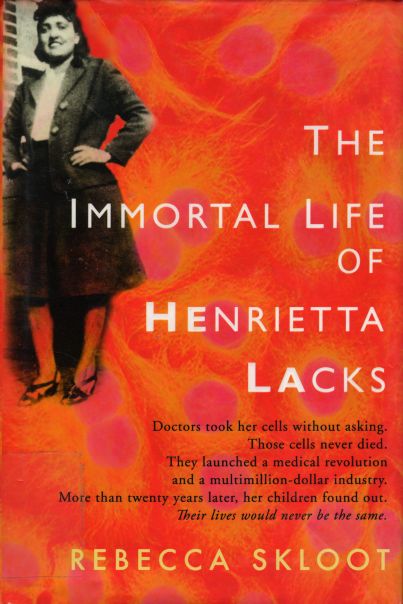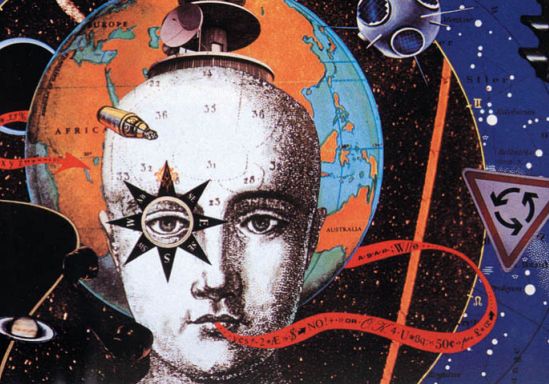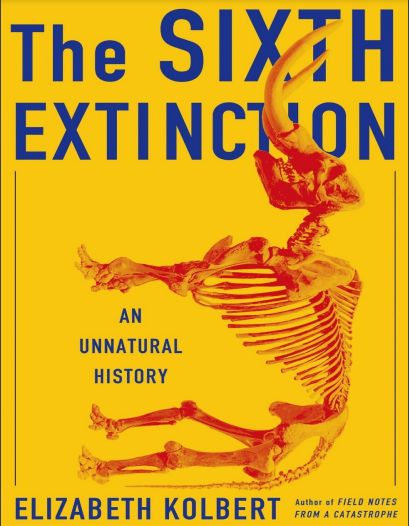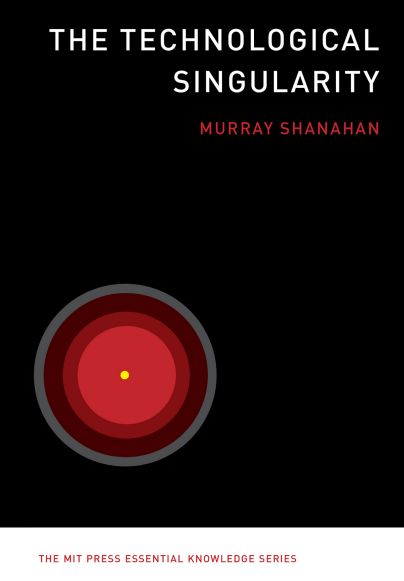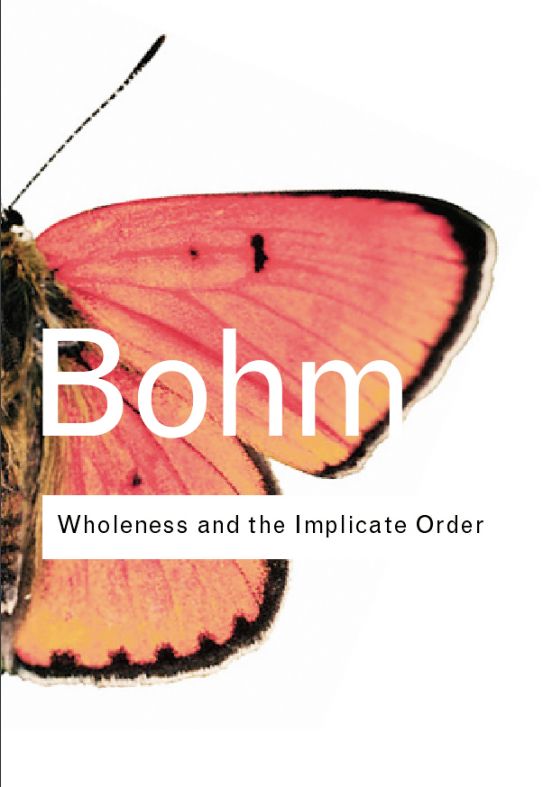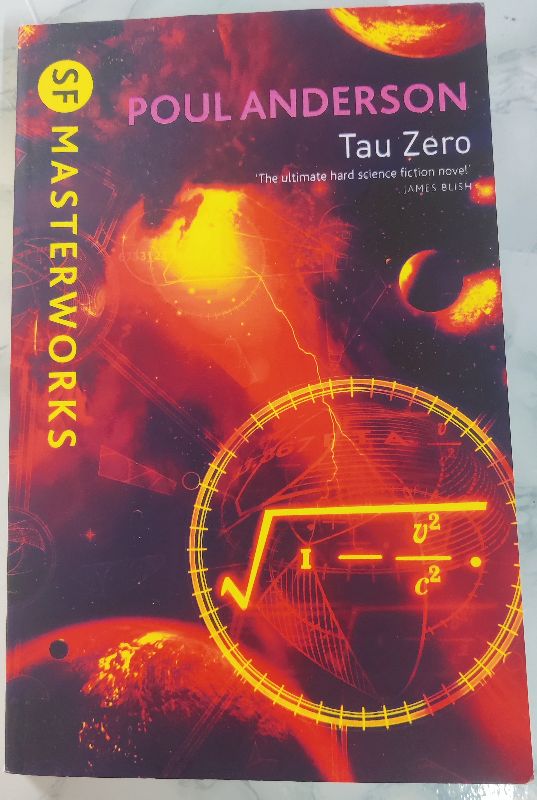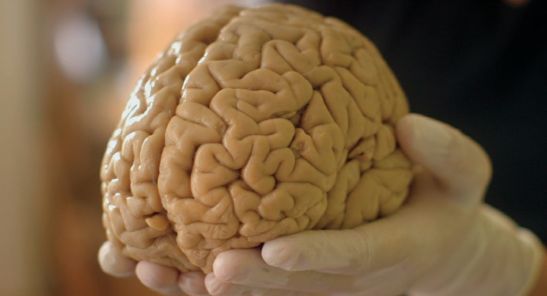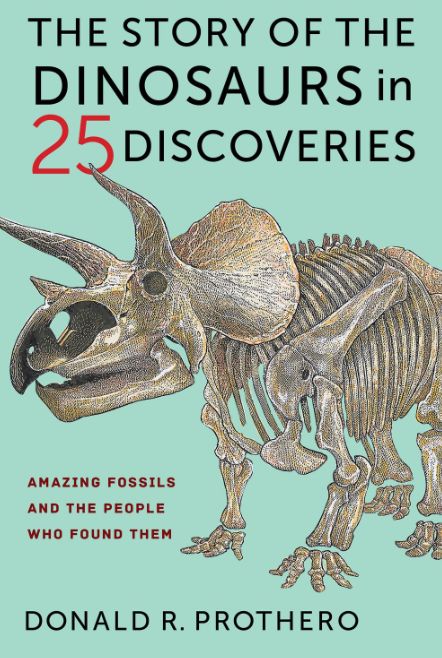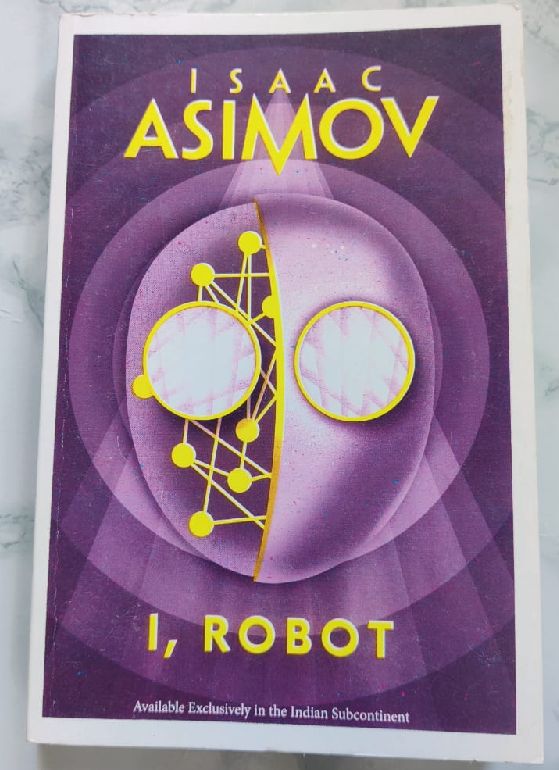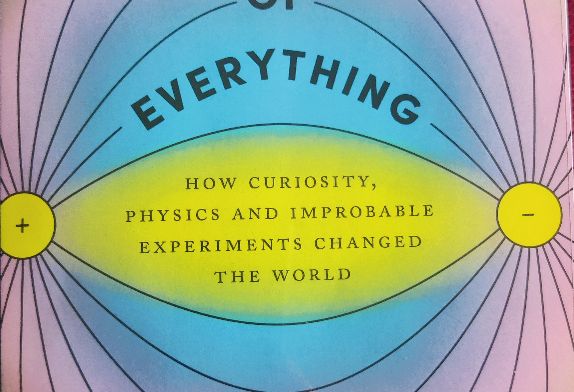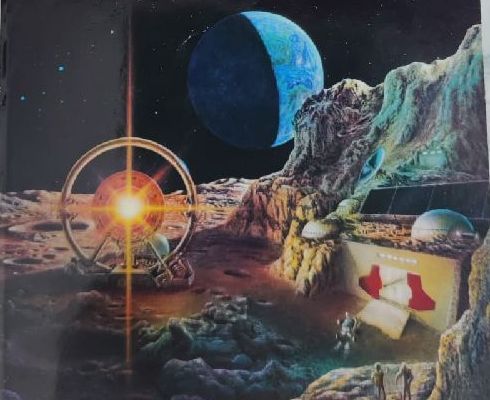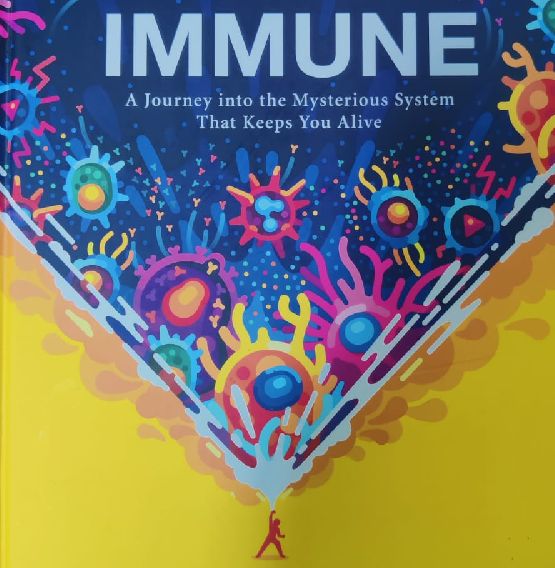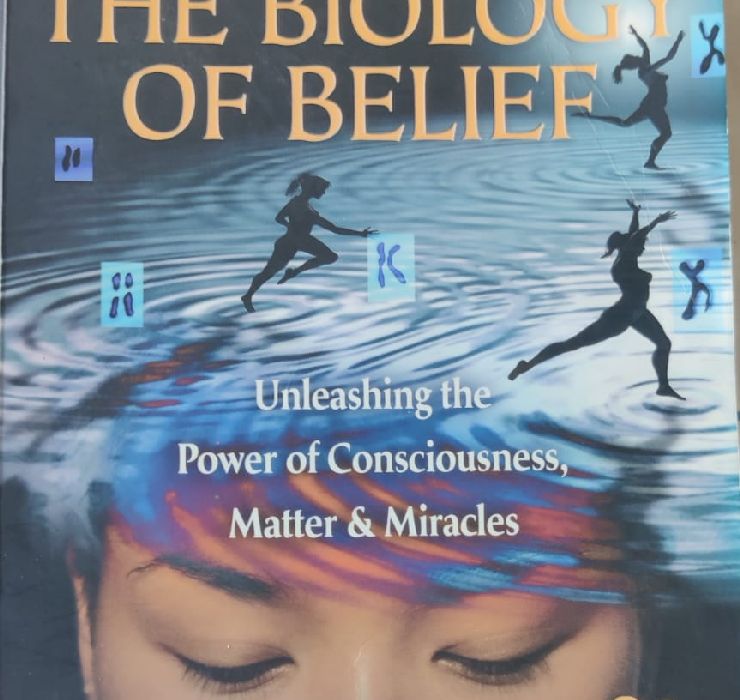The Immortal Life of Henrietta Lacks is a beautiful book written by Rebecca Skloot in 2010. It is about a poor African American woman who came down with a rare cervical cancer in 1950s. After giving birth to her fourth child, Henrietta grew suspicious of a lump in her cervix. To clarify things, she went straight to Johns Hopkins Hospital. The doctor took a biopsy by extracting sample cells for examination. Although she couldn’t survive, after a few sessions of x-ray therapy and radium treatment. She died at the age…
Read MoreTag: books
Book review: Surfing Through Hyperspace by Clifford A. Pickover
Surfing Through Hyperspace: Understanding Higher Universes in Six Easy Lessons by Clifford A. Pickover hovers around the concept of fourth dimension. In simple words, it’s a walkthrough of higher dimensions. Clifford A. Pickover is an American author, editor, and columnist in the fields of science, mathematics, science fiction, innovation, and creativity. A futurist and science writer, Pickover likes to contemplate realms beyond our 3-dimensional reality. Interestingly, he puts his ideas down on paper for readers like us to experience his visualizations.
Read MoreBook Review: The Sixth Extinction by Elizabeth Kolbert
In The Sixth Extinction: An Unnatural History, Elizabeth Kolbert explores the current state of biodiversity loss and the role that human activities have played in causing it. Kolbert is an American journalist and author. She is the editor of “The Best American Science and Nature Writing 2009” and the author of “The Prophet of Love: And Other Tales of Power and Deceit,” “Field Notes from a Catastrophe,” and “The Sixth Extinction,” for which she won the Pulitzer Prize for general nonfiction in 2015. The Sixth Extinction provides a detailed analysis…
Read MoreBook Review: Running Rewired by Jay Dicharry
Running Rewired: Reinvent Your Run for Stability, Strength, and Speed by Jay Dicharry is more of a workable program than a book to read. Jay is a physical therapist, teacher, biomechanics researcher, in Oregon, USA. His REP Lab is a national destination for elite athletes because he diagnoses and rebuilds injured endurance athletes. Along with Running Rewired, he has also written Anatomy for Runners: Unlocking Your Athletic Potential for Health, Speed, and Injury Prevention, which I’ll be reading and of course reviewing in the near future.
Read MoreBook Review: The Technological Singularity by Murray Shanahan
The Technological Singularity by Murray Shanahan hovers around a hypothetical event that is, a time in the future when AI has totally eclipsed human intelligence. What then? There will be an exponential progress in technology that’ll create a future too difficult to predict. Some experts, however, suggest that AI then can solve some of the world’s most pressing problems such as climate change, disease, and poverty. While others believe that the singularity could lead to the end of humanity as we know it.
Read MoreBook Review: Genius Foods by Max Lugavere
Human brain, is one of the most remarkable developments of evolution. Research has shown that it is capable to develop and adapt throughout our lives. New experiences and environmental changes are instrumental to its ability to reorganize itself by forming new neural connections and pathways. Also called as neural plasticity or brain plasticity. Yet, there are factors that could be detrimental to our brain health. Poor diet, no physical activity, chronic stress, and insufficient sleep are some triggers that can have negative effects on brain function and cognitive performance.
Read MoreBook Review: Wholeness and the Implicate Order by David Bohm
Our perception of the reality is not whole rather it is fragmented, this is the essence of Bohm’s Wholeness and the Implicate Order. David Bohm was a theoretical physicist who made significant contributions to the field of quantum mechanics. He was known for his causal and nonlocal interpretation of quantum mechanics, which challenged traditional views of the subject. He was also known for his work in other areas of physics and philosophy, including the concept of “implicate order” and his contributions to the understanding of the relationship between consciousness and…
Read MoreBook Review: Tau Zero by Poul Anderson
My favourite thought experiment is the notion that as an individual approaches the speed of light, time slows down. Now let’s extrapolate it to Big Crunch scenario. What if an individual travel at the speed of light and reaches the end of universe? According to Russian Physicist Alexander Friedmann, end of the universe depends on its density. Therefore, universe cannot stay stable for ever, it could either expand or contract. Gravity, with the help of matter, could slow down the expansion, then stop, and ultimately reverse it. Everything collapses within…
Read MoreBook Review: The Brain by Dr. David Eagleman
Dr. David Eagleman is a neuroscientist at Stanford, NYT bestselling author, Writer/Host of THE BRAIN on PBS, and the list continues. After listening to his podcasts and TED talks, I decided to pick-up one book from his vault – The Brain: The Story of You. The book is an interesting read and at some points, quite an eye opener. Here, Dr. Eagleman reviews how the human brain develops and make sense of the data that it receives from sensory systems. We are built to perceive only thin slice of perception,…
Read MoreBook Review: The Story of the Dinosaurs in 25 Discoveries by Donald R. Prothero
Since the origin of life in 3.5 billion years ago, hundreds of millions of species might have lived on planet earth. Most of those are extinct by now. In his exceptional book, The Story of the Dinosaurs in 25 Discoveries: Amazing Fossils and the People Who Found Them, Donald R. Prothero has tried to surface those species that led to the landmarks in evolution. The idea was to signify evolutionary transition from one group to another. An interesting read for those who are looking for history of dinosaur science. Very…
Read MoreBook Review: I, Robot by Isaac Asimov
I, Robot by Isaac Asimov is a collection of short stories written between 1940 and 1950 and were composed together in 1950. To create an ethical system for the co-existence of humans and machines, Asimov, laid the foundation of the three laws of robotics, which were:
Read MoreBook Review: The Matter of Everything by Dr. Suzie Sheehy
The Matter of Everything is penned by an accelerator physicist Dr. Suzie Sheehy. The book introduces us to the time when physicists were about to unravel the mysteries of matter via exploration of subatomic particles. And it all started with a serendipitous discovery by the German physicist Wilhelm Röntgen, who in 1895, was working with a cathode ray tube in his laboratory. He noticed that the phosphor-coated screen was giving off a green coloured light when exposed to a cathode ray tube.
Read MoreBook Review: The Gods Themselves by Isaac Asimov
Energy transfer between parallel universes, the idea is enough for any science fiction fan to pick up and read this awesome piece of work. The Gods Themselves is one of the earliest and fantastic read on multiple universes, nuclear forces, and Big Bang. The fundamental idea of why Big Bang occurs and the repercussions of disturbing the laws of physics that govern universe(s), are explained in the most simplified and narrative style by Isaac Asimov.
Read MoreBook Review: Immune by Philipp Dettmer
As the name suggests, Immune: A Journey into the Mysterious System that Keeps You Alive written by Kurzgesagt founder, Philipp Dettmer talks about the inner workings of the human immune system. A world which totally relies on pathways and chemical signals. And where each and every tiny molecule has a very well-defined role. Dettmer has explained scientific concepts related to human immune system in the most interesting and comprehensible manner. His description of various cellular components metaphors and similes makes it straight-forward to understand and easy to visualize, for instance,…
Read MoreBook Review: The Biology of Belief by Dr. Bruce Lipton
The Biology of Belief: Unleashing the Power of Consciousness, Matter & Miracles by Dr. Bruce Lipton came around the time when epigenetics was peeking over the horizon. The book talks about an individual’s belief system. As per which, thoughts, either positive or negative, have power to change our mental state, and hence our bodies and physical well-being. Understanding in physics graduated steadily. From Newtonian classical physics to Einstein’s theories of relativity followed by quantum mechanics, the physics of sub-atomic particles. According to Dr. Bruce, similar transition was missing in Biology.…
Read More
